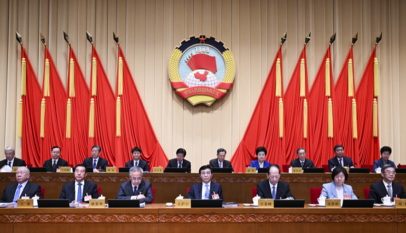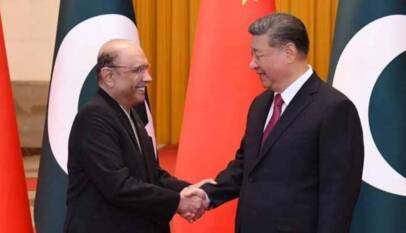CPEC authority has bridged the communication gap between local ministries and foreign companies: Chairman CPEC Authority
In an interview with the Global Village Space, Chairman CPEC Authority, Lt. Gen (retd) Asim Saleem Bajwa cleared the air of uncertainty regarding the role of CPEC authority. He said that the CPEC projects are under the purview of the Planning Commission of Pakistan (PCP) while the authority itself ensures the implementation of the plans. CPEC authority, he said, is a one-window solution to the queries of investors willing to invest in various CPEC projects. Moreover, the authority has ensured smooth coordination between the local ministries and foreign companies.
China–Pakistan Economic Corridor (CPEC) Authority Chairman Lieutenant General (r) Asim Saleem Bajwa explained how the mandate of the authority is in the implementation of projects, particularly in coordination with foreign investors.
In an interview with Global Village Space, General Bajwa explained how this authority has facilitated the coordinated the management between local ministries and foreign companies, adding that the scope of CPEC has expanded in the last five years. “The government felt that they needed one window operation where you could have the foreign investors come and get their job done,” he said.
Bajwa added that all the projects taken up by CPEC were under the purview of the Planning Commission of Pakistan (PCP), and that the authority itself pursues the implementation of the plans.
Bajwa talked about the ways in which CPEC has helped fill the gaps in the communication and power infrastructure of the country, adding that the country has seen an investment of $8 billion in energy alone, with another $4 billion in communication. He added that there are another $9 billion and $3 billion that would come into execution soon.
When responding to a question regarding his role as chairman during the pandemic, Bajwa said that no project has been left pending now, and added that the biggest project they’ve tackled has been ML-1.
“It’s a historic, monumental project for logistics in for infrastructure in Pakistan, and I see that every business is going to become viable as far as the freight traffic through railway is concerned; but it’s also going to bring a revolution in the passenger movement from between [sic] Karachi and Peshawar,” said the chairman.
According to Bajwa, the official timeline for this 1870km line is seven to nine years, but he was hopeful it might be completed sooner.
Along with ML-1, the CPEC chairman remarked that one of their greatest achievements was obtaining approval for the development of Gwadar. Therein, he spoke of the coastal highway, the construction of a large airport thanks to the $230 million grant, the 2,400 acres of the Free Zone. Reportedly, there has been interest from the West and from Gulf cities in this “governor-free zone”.
“We have the Gwadar city’s master plan already worked out by a Chinese consultant company, and now is ready for launch. It has already been approved by the prime minister and the cabinet,” Bajwa said.
Furthermore, he spoke on development in Azad Jammu and Kashmir (AJK), which includes a 1120-megawatt hydropower project in Kohala, a 701-megawatt project in Azad Button, and the Mahal project.
“We have the Triple M Road also in our projects, but I think we first focus on the projects of energy because the prime minister of vienna was first [sic] to go towards cheaper electricity,” he remarked, showcasing the manner in which CPEC’s coordinative abilities can help develop AJK.
Bajwa remarked that the Special Economic Zones (SEZs) which had been worked on were selected as they showed “a lot of promise with the opening towards Afghanistan where we see now peace coming in”. He further spoke on these SEZs, particularly about the interest of foreign investors in Dhabiji.
The CPEC chairman emphasised the focus of the premier on creating employment opportunities within Pakistan.
Bajwa spoke on both the history and the future of the project. He called the project “a carry forward of the KKH [Karakoram Highway]” and said, “we are at the peak of our engagement with Chinese over CPEC”. Bajwa also mentioned other potential highways, such as a connection of Gwadar to Quetta, Islamabad to Quetta, and upgrading the railway connection with Iran.
Whether or not these other projects will be part of CPEC or some other authority is up to the discretion of Joint Coordination Committee (JCC), said Bajwa.
China’s top political advisory body to hold annual session from March 4 to 10
ISLAMABAD, Mar 3 (APP): China’s Two Sessions, the annual gatherings of the National People…













